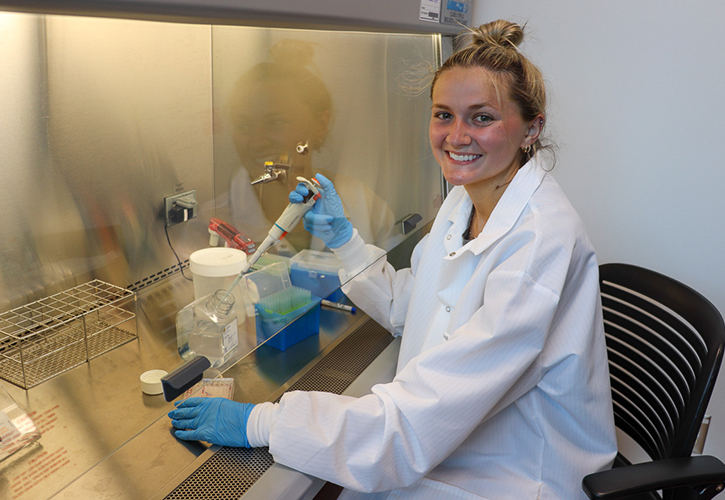Biology
Find the program for you.
We award Bachelor of Science (B.S.) degrees in biology and environmental biology. Upon completion of a B.S. program our students possess a professional resume, oral presentation skills, hands-on experience, and analytical and computer skills valued by employers, graduate schools and professional schools. Undergraduates have the opportunity to work alongside faculty and graduate students as teams to conduct world class research. Our graduates find a wide range of career opportunities available to them including the medical professions, academic and industrial research, teaching positions and government positions. We also offer a minor in Biology, for students of any major.
We also award Master of Science and Doctor of Philosophy degrees in biology. The success of our graduate programs is rooted in a strong orientation toward bioinstrumentation and the individualized attention received by each graduate student. Our Master's and Doctoral graduates are highly sought-after and readily employed by academic institutions, industry, government agencies, research institutions, and hospitals.
We’d love to meet with you. Schedule an academic appointment by calling our department at 937-229-2521 or email us at ecox01@udayton.edu. If you’d like to schedule a general campus visit or tour, learn about the options available through the link below.

